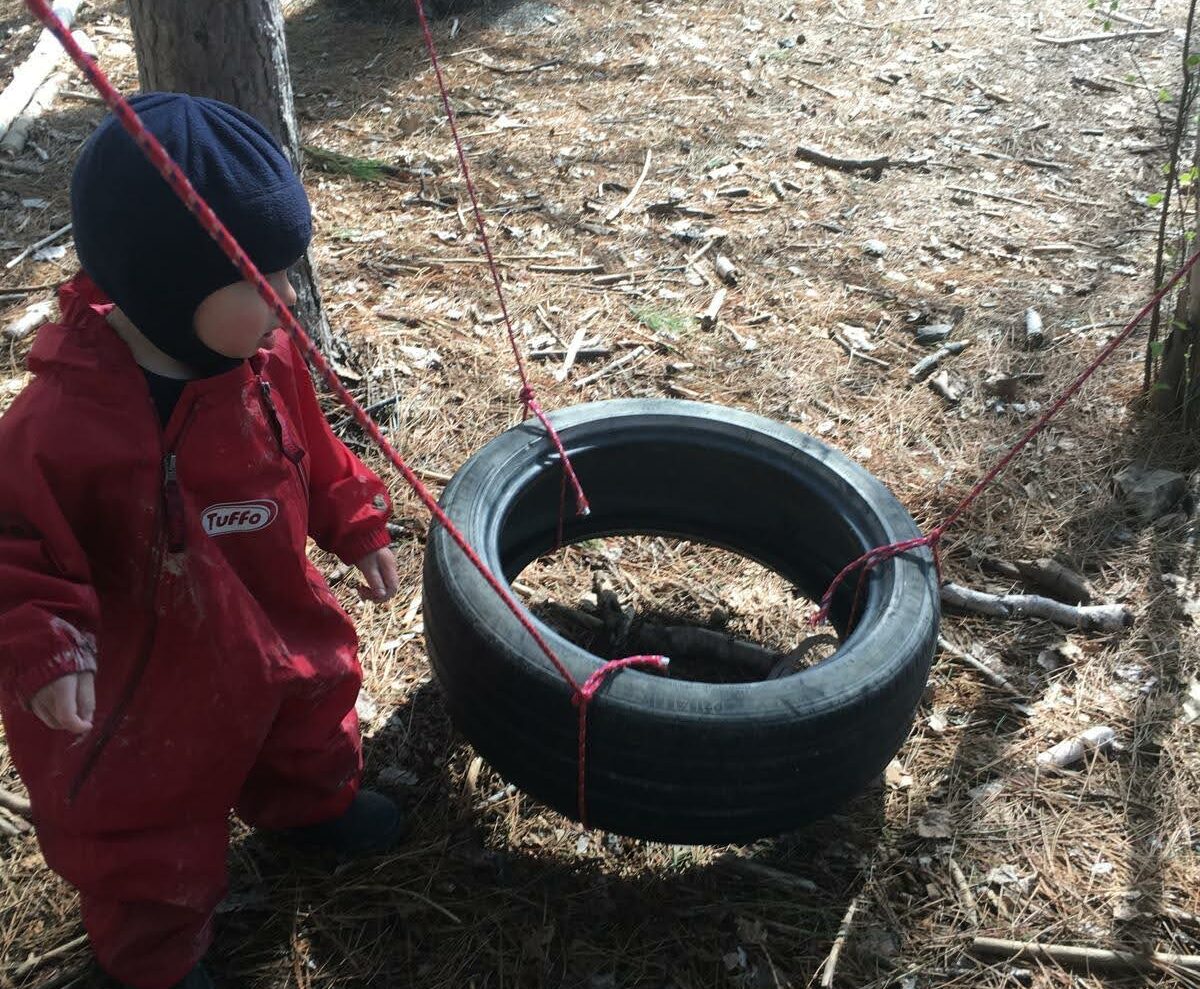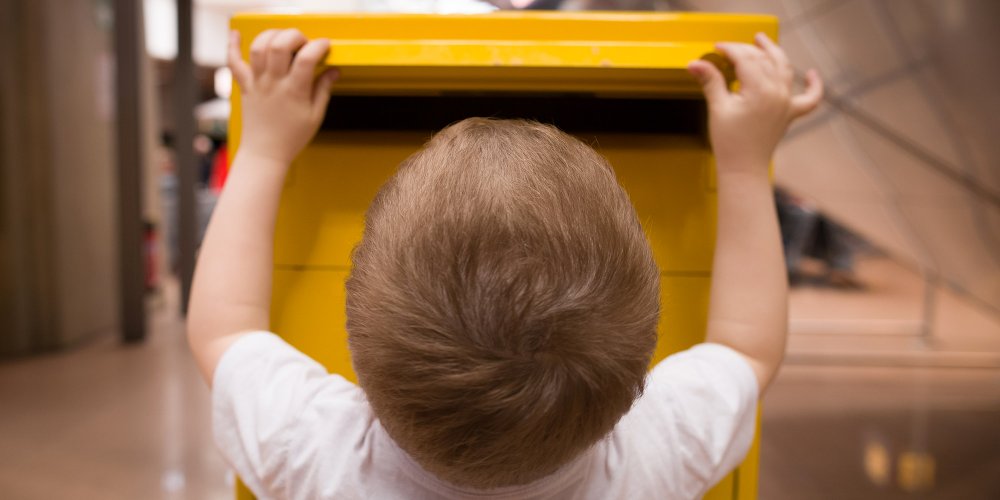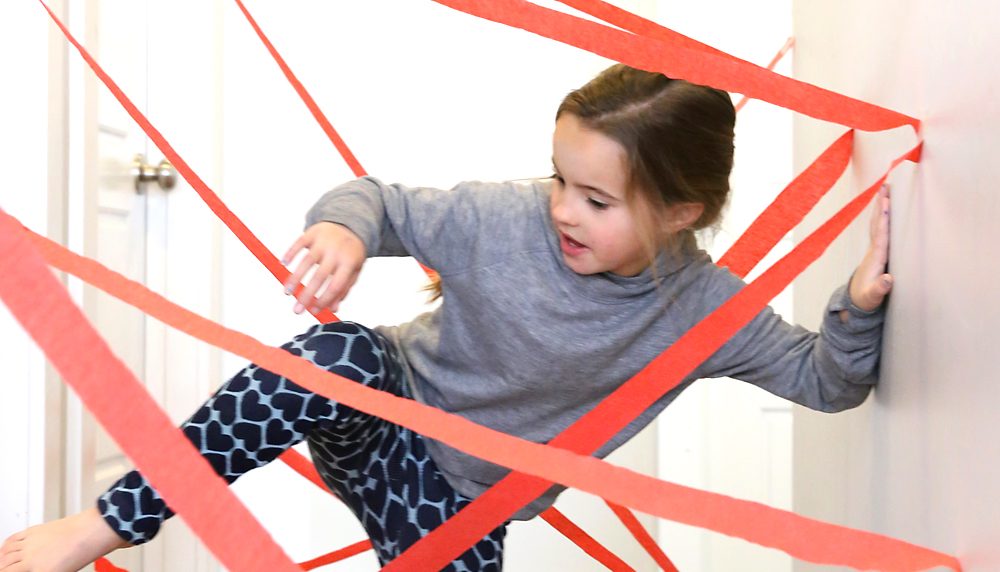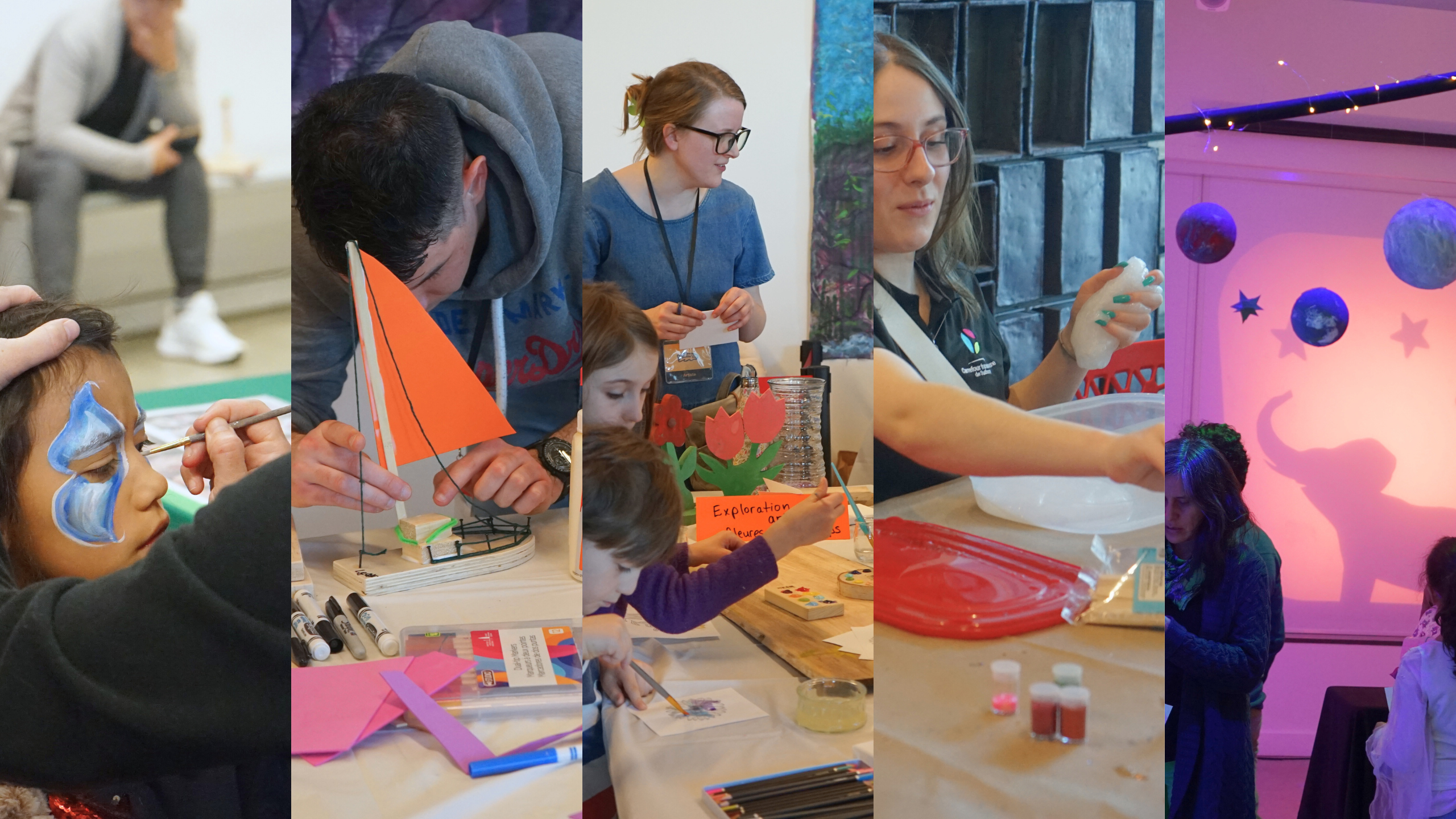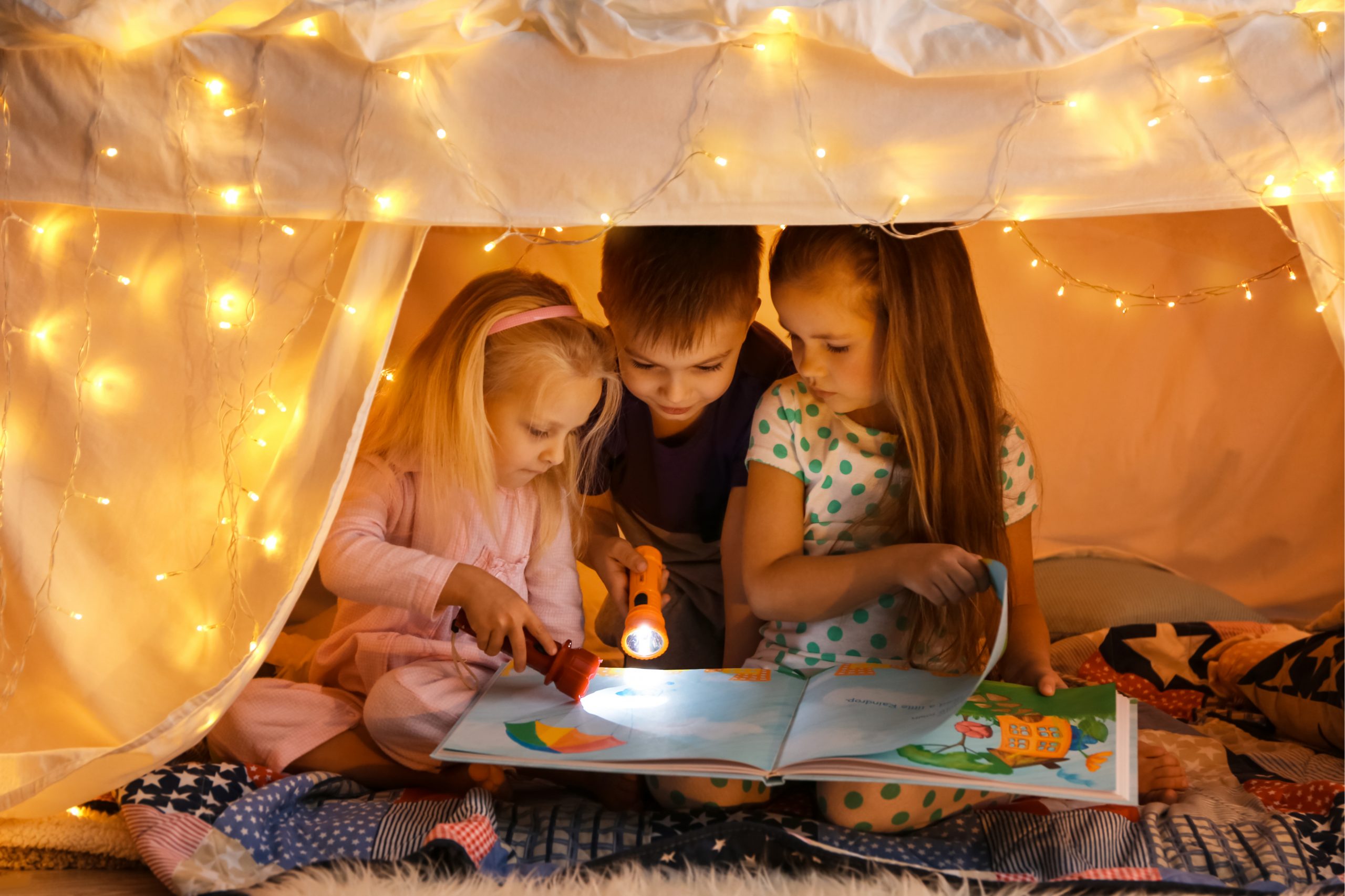"Out, children!"
During the month of March, 14 educators from Carrefour Francophone’s early childhood centers were trained by Child and Nature Alliance of Canada (CNAC) to help them further develop nature-based learning.
Among other things, this enables educators to develop their knowledge and practice in the healthy and measured management of risky play.
Risky play is part of what we call free play, and is essential for children’s development and their physical, mental and social health. Over the past few decades, supervised, planned and structured indoor play has gradually replaced free play and, above all, outdoor play. As screens take on an ever-greater role in children’s daily lives, it is becoming essential to work towards encouraging free and risky outdoor play.
As Angela Hanscom, pediatric occupational therapist and author of the book “Dehors les enfants! which means : Out, children!” explains, free physical play outdoors promotes healthy sensorimotor development in children:
“Immersed in nature, children learn to take risks, overcome their fears, make new friends, regulate their emotions and create imaginary worlds”.
When they're outside, anything's possible!
They can walk, jump, run, climb, construct all kinds of buildings using natural elements, play in the water or with the earth, and collect treasures. They discover their environment, make connections, explore and learn about the seasons, make decisions and solve problems.
Risky play is often associated with outdoor or wilderness activities, where zero risk does not exist. Nevertheless, it is important to distinguish risk from danger. Children are not put in a dangerous situation.
A situation is dangerous when the child is placed in a position in which he or she does not have the capacity to perceive or manage the risk of injury. For example, if the child is allowed to play on a poorly anchored structure that could give way or topple over under the child’s weight.
On the contrary, when a child can recognize a risk, become aware of the difficulty it presents and put in place a plan of action that will enable him to overcome it, thanks to his skills, he is not in a dangerous situation. They can assess, for example, how high they can climb on a structure.
During outdoor outings, our educators are always on hand to observe and intervene when necessary. Each activity performed by the children is also subject to a benefit/risk assessment.
For example, if children are attracted to rope games, a benefit/risk assessment will be carried out. This will determine what benefits the child will derive from these games, and what the risks are. Following this assessment, if the risk is too great, educators can decide to take action to reduce the risk.
The 7 Relations at the Heart of the Nature School
The training provided by CNAC supports educators in their efforts to make room for free outdoor play for young children. Educators benefit from a wide range of tools and have been able to deepen their understanding of outdoor pedagogy.
During the program, they saw the 7 Relationships at the Heart of the Nature School. This is a concept developed by Lise Brown and Adrian Alphonso for CNAC.
The 7 Relationships at the Heart of the Nature School enabled us to realize that each action, each activity, carried out in the forest with the children, implies different relationships. Thanks to this teaching, forest activities have taken on a whole new dimension, and this transmission has validated the importance of forest activities and all they bring.
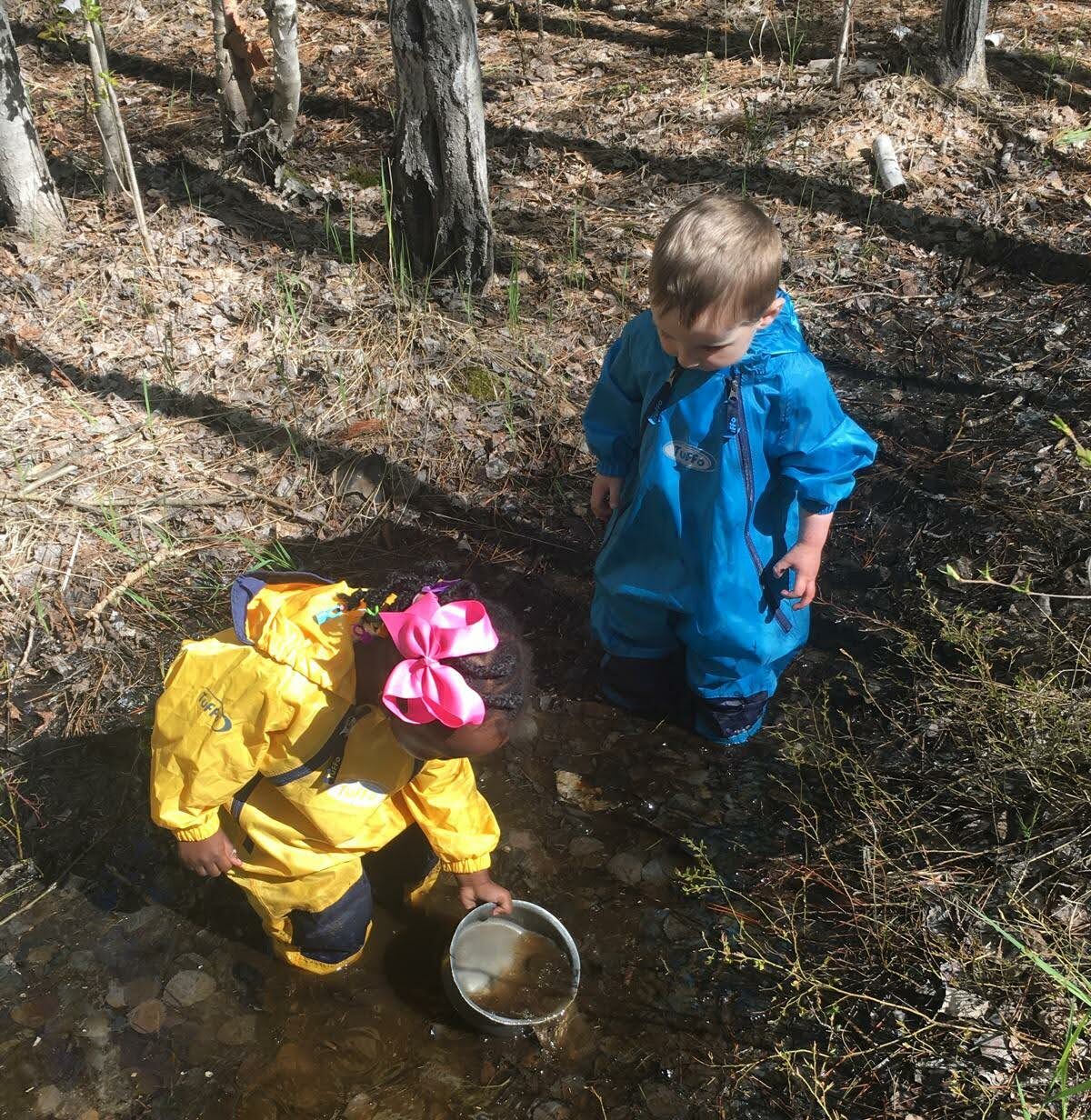
The relationship with the territory
When children take part in forest activities, they develop their relationship with the land on which they stand. With the support of our educators, they learn about the specific features of their playground: forests, fields, streams, shores… and they learn to move safely in this space, to connect with their environment.
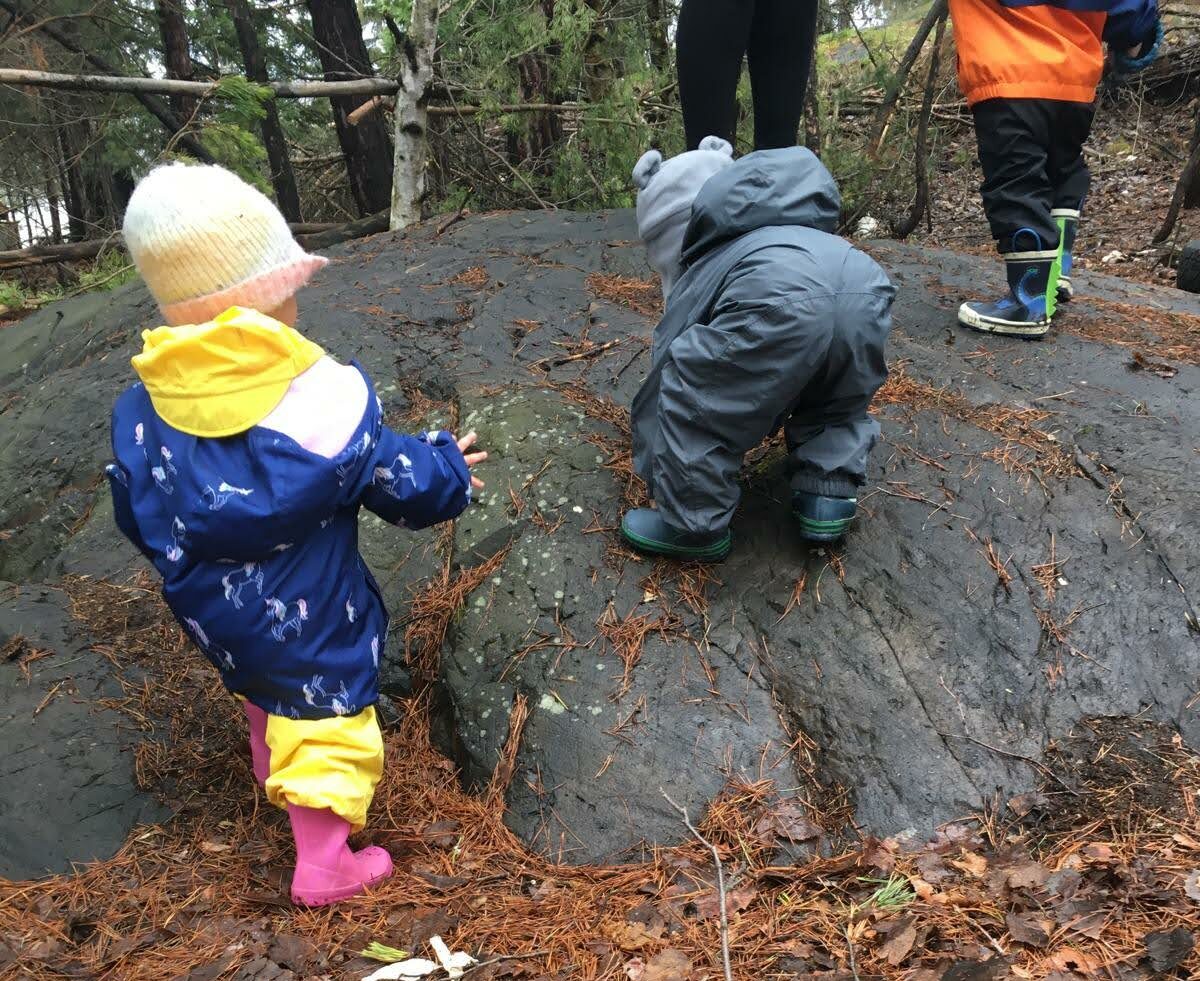
The relationship with stories
The relationship with stories also develops, whether through storytelling or when children experiment and then recount their different experiences, recalling their adventures. Stories are a powerful means of transmission, connecting us to one another.
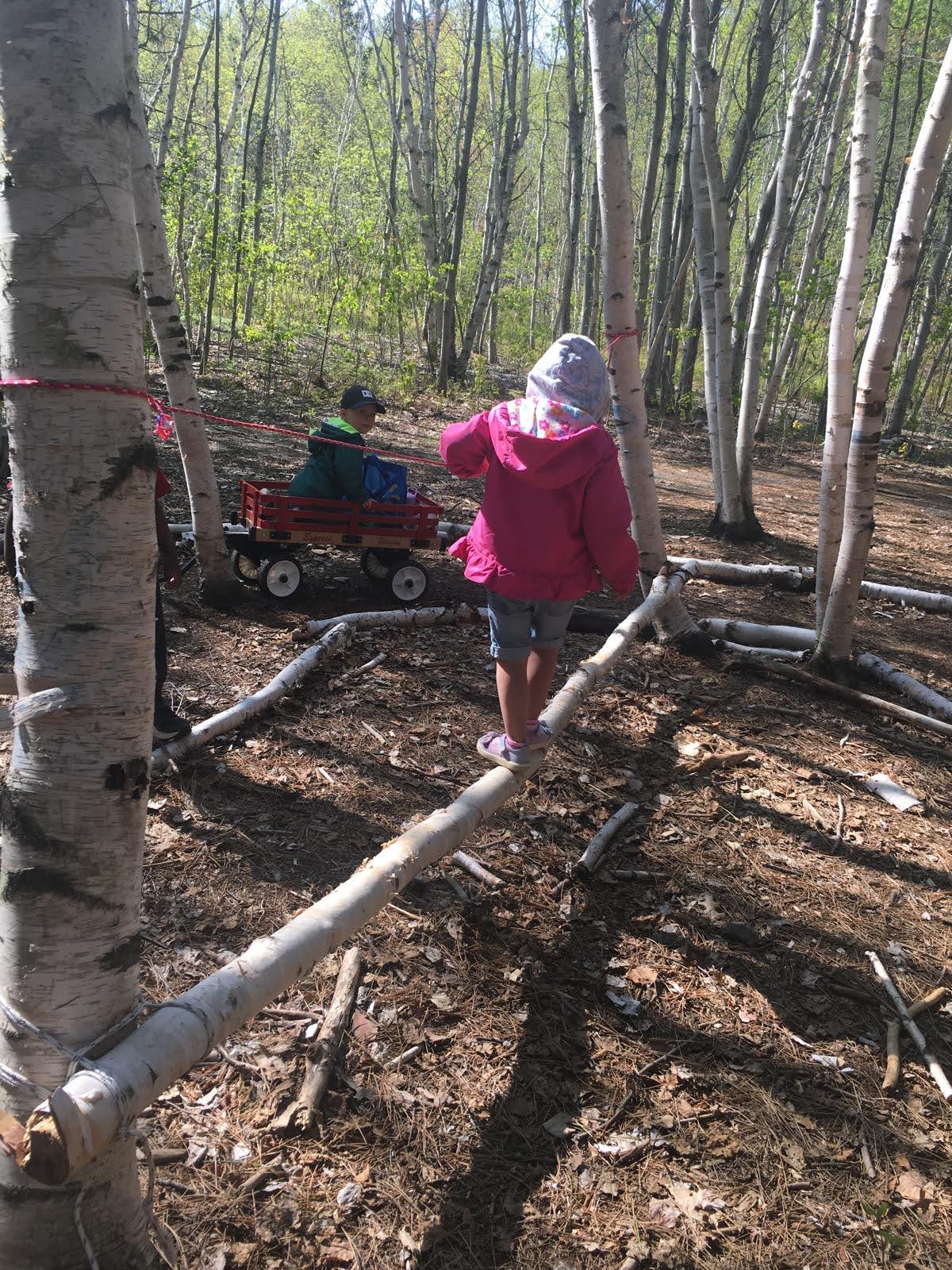
The relationship with the game
Of course, in any activity or time spent in the forest or outdoors, the relationship we find is with play. At Carrefour francophone, free play is encouraged. It is all about letting children explore, develop their skills and learn to assess risks to gain confidence in their abilities. All this in a safe environment, under the watchful eye of our educators. Play is a fantastic vehicle for learning, and children have plenty of time to experiment.
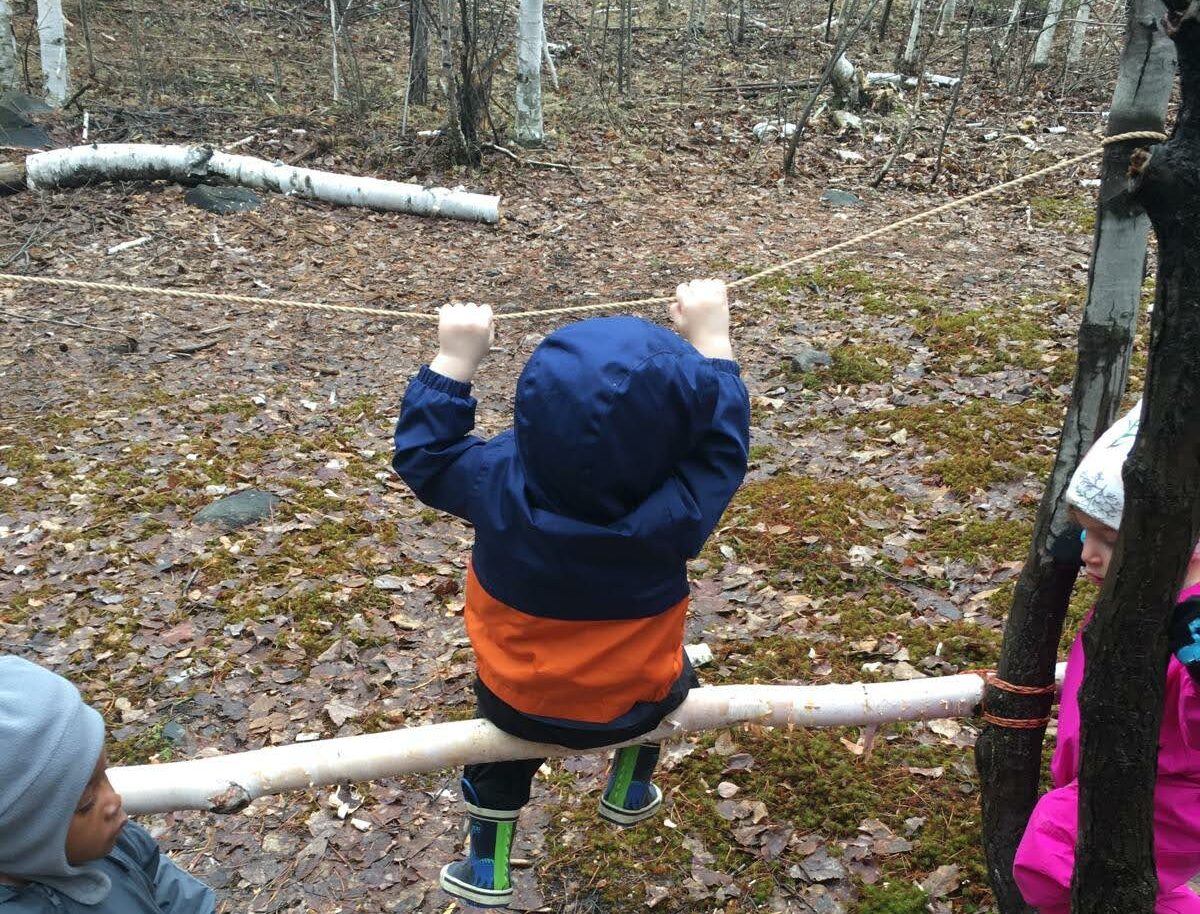
The relationship with trust
Nature-based pedagogy is child-centered and a way of developing relationships with trust. Educators recognize children’s abilities, skills and natural curiosity, and support them in their process of discovery and experimentation. Children have the space, thanks to the educators’ posture and the natural environment, to blossom and develop their self-confidence, which is so essential in everyday life.
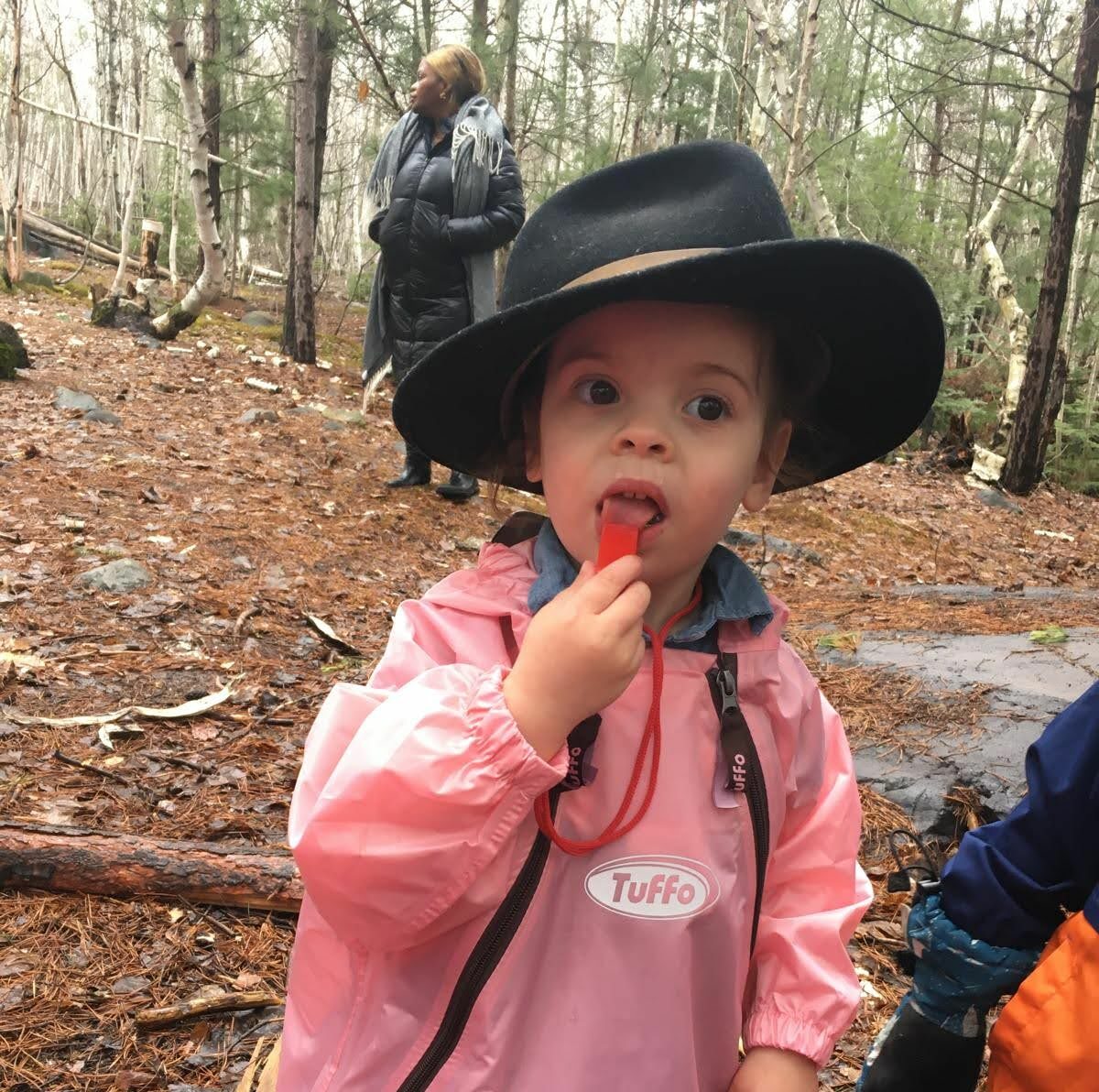
The relationship with power
Outings to the forest are the space par excellence when it comes to the relationship with power. The role of educators is to do what they can to enhance rather than limit children’s experience of the forest. This means adopting an attentive, caring attitude, taking the territory into account and creating safe spaces where everyone can flourish.
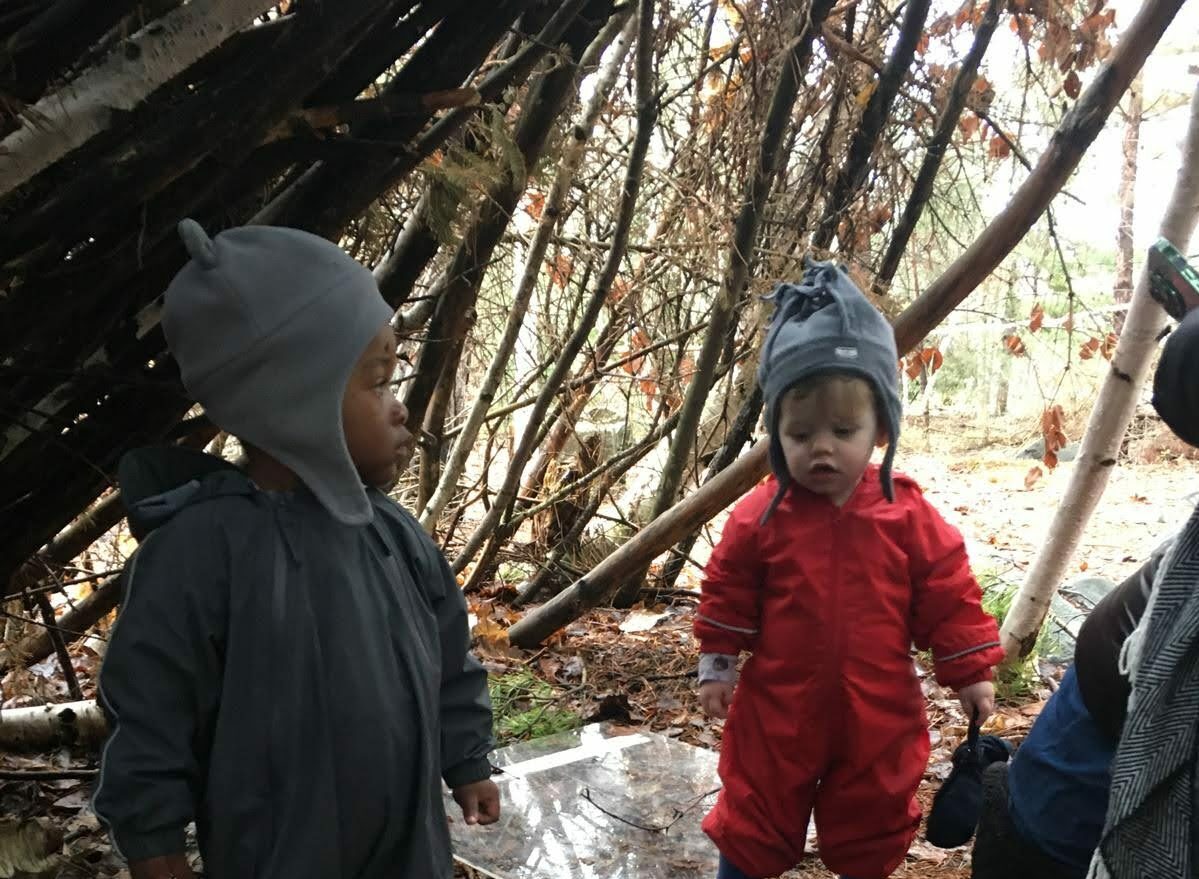
The relationship with learning
The educators help develop the relationship with learning, acting as adventure facilitators and guides for the children. They also document the children’s experiences in a Floorbook, a logbook in which the children can add drawings and in which the educators transcribe what the children share with them. With nature-based pedagogy, learning is child-led, with the child gradually unveiling and building the curriculum.
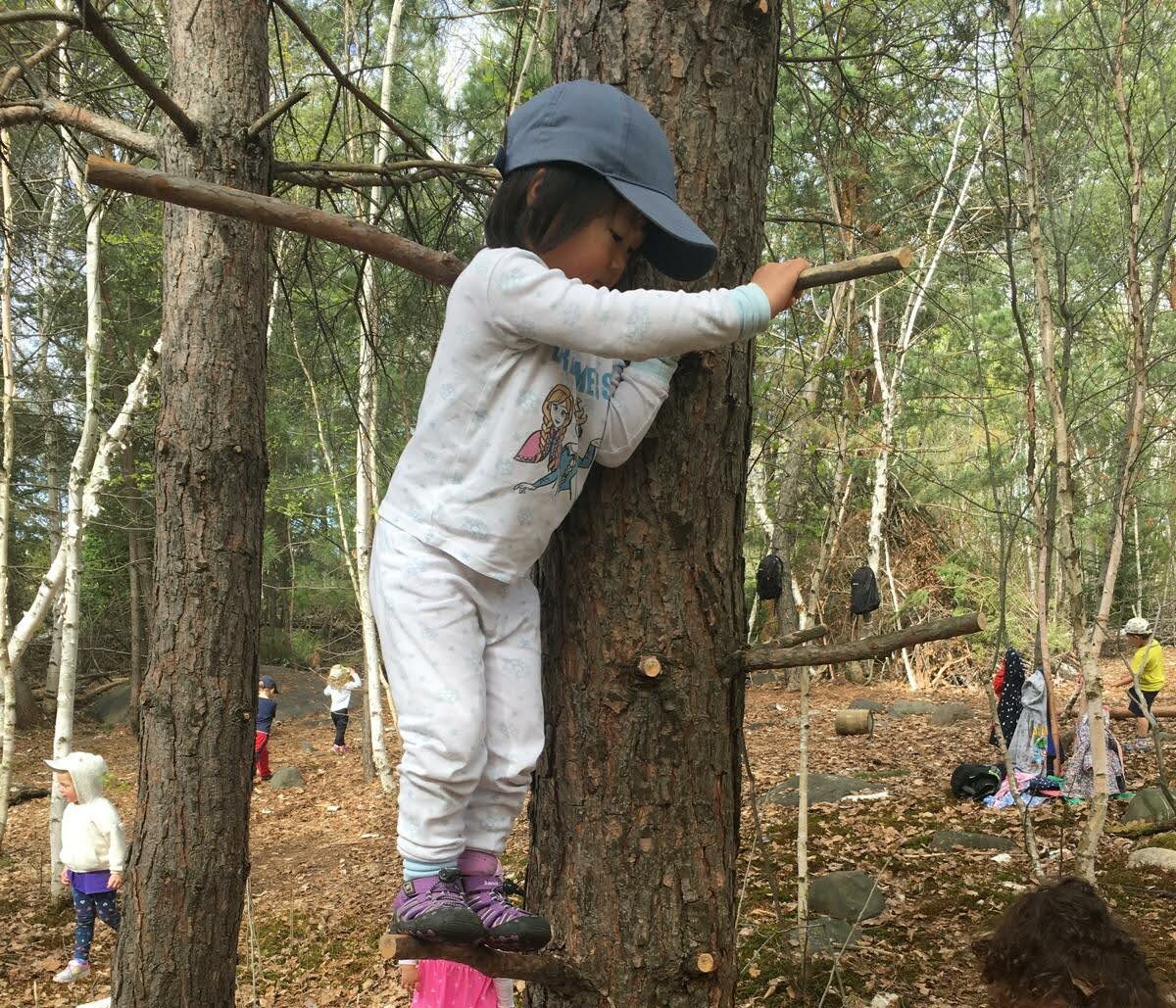
The relationship with risk
Getting out into the great outdoors brings children into contact with nature, but also with risk. Nature stimulates play, but by exploring and exposing ourselves to the weather, we also expose ourselves to certain risks.
The role of the educator is to know how to assess the risk, to invite the child to learn how to manage the risk measured against his or her abilities. Sometimes, when weather conditions present too many risks, such as storms, when temperatures are too cold or too hot, or when there is excessive wind, children play indoors. The child’s safety is always the priority.
A breakthrough for child-directed play
These 7 relationships at the Heart of the School of Nature highlight the importance of outdoor play and nature-based education in children’s development. The training provided by Child and Nature Alliance of Canada to the educators at Carrefour francophone childcare centers represents a significant step forward in the implementation of outdoor free play.
By promoting outdoor play, educators offer children unique opportunities for sensory-motor, social and emotional development. Thanks to this approach, children learn to take measured risks, explore their natural environment and develop their self-confidence.
If you would like to find out more about CNAC’s initiatives and how you can support outdoor play in your community, we encourage you to visit their website (https://childnature.ca/). You will find detailed information on their training programs and the resources available for educators, parents and communities interested in this enriching educational approach.

